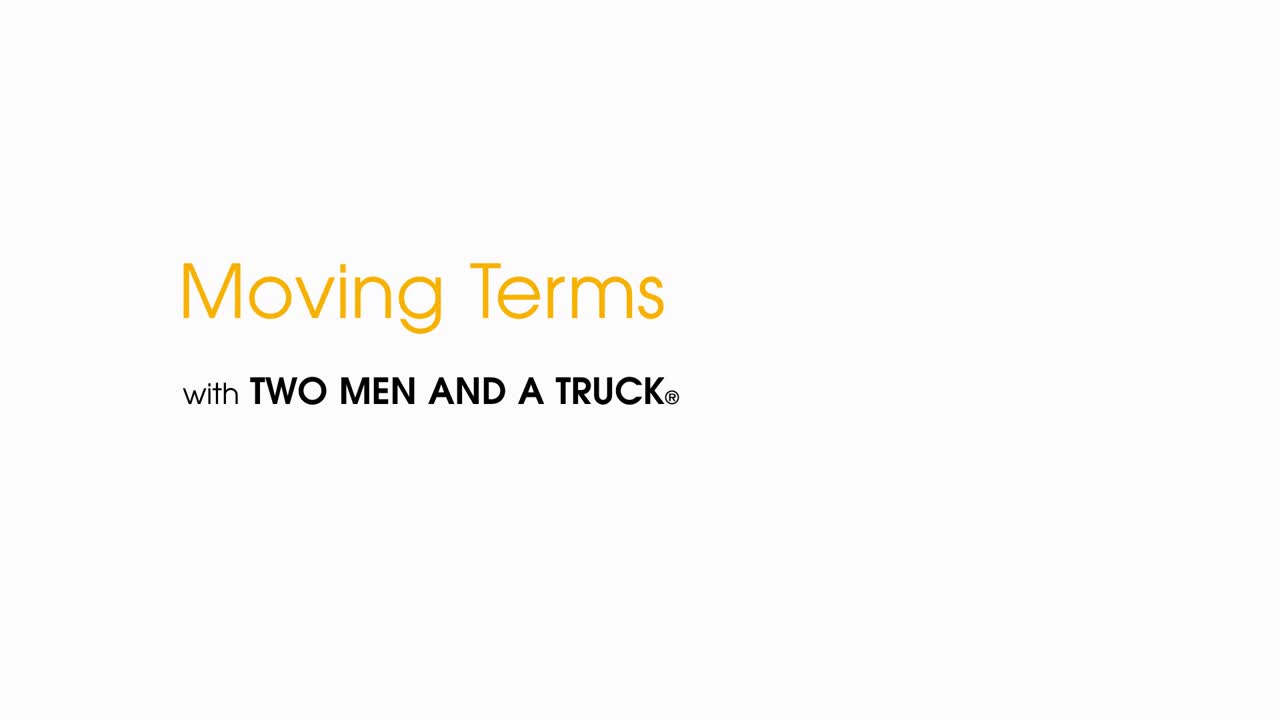
While we try our best not to use too much industry jargon, it’s always important to familiarize yourself with these important terms as you’re looking to hire a moving company to relocate your home or business.

Rates — Charging by the hour, per person, per truck or per job.
Standard coverage — Movers are required by law to provide a minimum amount of complimentary coverage. This number, typically 60 cents, refers to the amount of money you will receive per pound of damaged goods. This coverage is a bare minimum and should not be relied upon to cover you for any significant damage. For example, if you have a priceless vase that weighs two pounds, you would only be entitled to $1.20 of compensation if the vase is damaged in transit.
Coverage options/assessed valuation — More information on valuation coverage and commonly asked questions can be found here.
Binding/non-binding estimate —
- Binding - a price based upon a given inventory, meaning no matter how long the job takes, the flat price is always paid (it's given only when an onsite estimate is performed).
- Non-Binding - estimates based upon the movers' previous experience (these estimates are subject to change.)
Bill of Lading — The contract between the mover and the customer that also acts as a receipt (it's important to understand everything on the bill of lading before you sign it).
Packing supplies - A full list of moving boxes and packing supplies can be found here.
Full-service mover — Most common type of moving company. Movers will relocate all household goods from your old address to your new address. Your items are picked up from every room in your old home and delivered to the appropriate rooms in your new home. Individual pieces of furniture are wrapped. Full-service movers will also provide, at additional cost, full packing and unpacking services.
Inventory — A listing of all goods contained within a shipment. It is used to report the condition of goods and the contents of boxes, as well as a receipt of acceptance of the goods by the shipper. It is also called the household goods descriptive inventory.
Interstate move — The moving of household goods across state lines. Interstate moving is regulated by the Federal Motor Carrier Safety Administration (FMCSA).
Intrastate move — Movement of goods within the boundaries of a single state.
Packing service — Many full-service movers provide customers the option of having all of their possessions packed before the move and later unpacked at the destination
Tariff — A published schedule of rules, rates, and charges for the transportation of household goods. The most common household goods tariff is the 400 series, published through the Household Goods Carriers Bureau.
Furniture protection - Includes pad wrapping and/or stretch wrapping your furniture to protect furniture from damage as they are transported.


